M.E. Sutton's Blog, page 17
February 3, 2013
Blog Posts and News
by Mary Sutton / mary_sutton73
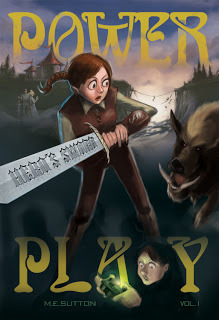 In case you missed it, I had a couple of guest blog posts published on To Be Read Books last week.
In case you missed it, I had a couple of guest blog posts published on To Be Read Books last week.
On Tuesday, I wrote about my list of books for reluctant readers. With a one kid who is a lukewarm reader at best, I know about trying to find a book to entice those kids who would rather do anything other than read.
On Thursday, I talked about my first adventure in Mallory and how I got into writing Hero's Sword.
If you missed the announcement, I have signed a contract to write the next three books in the Hero's Sword series. In addition, look for my story An Idyllic Place for Murder, the first in the Laurel Highlands Mysteries series in the spring/summer issue of Mysterical-e, an online magazine. See you in Mallory!
 In case you missed it, I had a couple of guest blog posts published on To Be Read Books last week.
In case you missed it, I had a couple of guest blog posts published on To Be Read Books last week.On Tuesday, I wrote about my list of books for reluctant readers. With a one kid who is a lukewarm reader at best, I know about trying to find a book to entice those kids who would rather do anything other than read.
On Thursday, I talked about my first adventure in Mallory and how I got into writing Hero's Sword.
If you missed the announcement, I have signed a contract to write the next three books in the Hero's Sword series. In addition, look for my story An Idyllic Place for Murder, the first in the Laurel Highlands Mysteries series in the spring/summer issue of Mysterical-e, an online magazine. See you in Mallory!
Published on February 03, 2013 16:16
January 28, 2013
Turning a Writing Corner
by Mary Sutton / @mary_sutton73
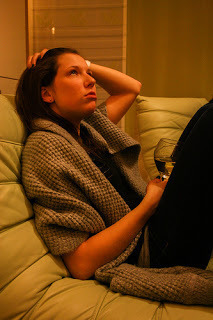 I've always been kind of happy that I can watch TV shows without descending into writing nitpicks. I mean, sometimes you just want to watch a show without obsessing about the details, right?
I've always been kind of happy that I can watch TV shows without descending into writing nitpicks. I mean, sometimes you just want to watch a show without obsessing about the details, right?
Well, lately, the husband and I have enjoyed watching old episodes of A Touch of Frost , an old police-detective series from the BBC. We like the BBC and we like mysteries - so this is a good match. We've really been enjoying the show, despite the face that they killed off one of our favorite recurring characters at the end of Season 4 (kill your darlings anyone?) and came perilously close to my #2 pet peeve, killing a dog (they didn't, the dog lived, rest easy).
As a writer of crime fiction, I've been able to turn off that part of my brain. But last night, I think I turned a corner.
The episode starts with Frost facing a pile of bills, having his utilities disconnected for non-payment, and bemoaning "expenses," so he takes in a renter to help cover the costs. But, but, but...
Frost's wife died in Season 1 after a long illness where he had to pay for home health care. We're now in Season 5. He hasn't changed jobs. There's been no mention of pay cuts at work. So why is he only now having financial trouble? Just boom! out of the blue he can't pay the bills? No mention of this before? Really?
Then, a government health official throws an expensive leather jacket over a barbed wire fence to break into a meat packing facility after hours? What mid-level government official does that - no matter what nefarious business he thinks the company is up to?
When I mentioned all this, my husband looked at me and said, "That's really bugging the crime fiction author in you, isn't it?"
And it hit me - I can't dissociate the two parts of my brain. The writer part and the watcher/reader part.
I can't read a book without hitting a clunky part of dialog and wincing, or wanting to applaud a particularly well-written exchange. Character actions, conflict, climax, plotting - all of it gets the authorial treatment. If it worked for me, why? If it didn't, why not?
I can't decide if this is a good thing or a bad thing. On the one hand, it's good because I think it shows I have a new awareness of these things - which can only help my own fiction. On the other hand, I run the risk of over-analyzing everything I read, and potentially destroying the primary reason I read fiction - to escape and not have to think.
But now that I've noticed this, I can't turn it off - for better or for worse. At some level, I know I'll be constantly analyzing the writing, picking apart the things that delight and the things that, well, don't. And I guess that's just part of being in the fiction realm. But one thing's for darn sure.
I'll never look at a critique group the same way again.
What about you? If you're a writer, do you analyze what you read - especially works in your preferred genre?
Image from Flickr used under Creative Commons
 I've always been kind of happy that I can watch TV shows without descending into writing nitpicks. I mean, sometimes you just want to watch a show without obsessing about the details, right?
I've always been kind of happy that I can watch TV shows without descending into writing nitpicks. I mean, sometimes you just want to watch a show without obsessing about the details, right?Well, lately, the husband and I have enjoyed watching old episodes of A Touch of Frost , an old police-detective series from the BBC. We like the BBC and we like mysteries - so this is a good match. We've really been enjoying the show, despite the face that they killed off one of our favorite recurring characters at the end of Season 4 (kill your darlings anyone?) and came perilously close to my #2 pet peeve, killing a dog (they didn't, the dog lived, rest easy).
As a writer of crime fiction, I've been able to turn off that part of my brain. But last night, I think I turned a corner.
The episode starts with Frost facing a pile of bills, having his utilities disconnected for non-payment, and bemoaning "expenses," so he takes in a renter to help cover the costs. But, but, but...
Frost's wife died in Season 1 after a long illness where he had to pay for home health care. We're now in Season 5. He hasn't changed jobs. There's been no mention of pay cuts at work. So why is he only now having financial trouble? Just boom! out of the blue he can't pay the bills? No mention of this before? Really?
Then, a government health official throws an expensive leather jacket over a barbed wire fence to break into a meat packing facility after hours? What mid-level government official does that - no matter what nefarious business he thinks the company is up to?
When I mentioned all this, my husband looked at me and said, "That's really bugging the crime fiction author in you, isn't it?"
And it hit me - I can't dissociate the two parts of my brain. The writer part and the watcher/reader part.
I can't read a book without hitting a clunky part of dialog and wincing, or wanting to applaud a particularly well-written exchange. Character actions, conflict, climax, plotting - all of it gets the authorial treatment. If it worked for me, why? If it didn't, why not?
I can't decide if this is a good thing or a bad thing. On the one hand, it's good because I think it shows I have a new awareness of these things - which can only help my own fiction. On the other hand, I run the risk of over-analyzing everything I read, and potentially destroying the primary reason I read fiction - to escape and not have to think.
But now that I've noticed this, I can't turn it off - for better or for worse. At some level, I know I'll be constantly analyzing the writing, picking apart the things that delight and the things that, well, don't. And I guess that's just part of being in the fiction realm. But one thing's for darn sure.
I'll never look at a critique group the same way again.
What about you? If you're a writer, do you analyze what you read - especially works in your preferred genre?
Image from Flickr used under Creative Commons
Published on January 28, 2013 08:57
January 17, 2013
Power Play Day with Stacy Juba
by Mary Sutton / @mary_sutton73
So just what is "power play day?" Well...
A "power play" in hockey is when one team is playing with one or more players than the other as the result of a penalty. And hockey is very much front and center in Stacy Juba's young adult book, Face Off. The book, a re-issue of the original, deals with twins Brad and TJ, whose rivalry isn't limited to the action on the ice. Who will come out on top? You'll have to read (or listen) to find out.
In my book, Power Play, Jaycee has to deal with a political grab for power by an unknown person. That unknown person is going to play a big part in the series, as Jaycee's repeated visits to the game world of Mallory challenge her to find out who this unknown enemy is and stop him. I visited Stacy's blog; you can read the interview here.
Take two young adult books, two authors, two interviews, shake well, and that is "power play day."
Here's Stacy!
~~~~~~~~~~~~~~~~~~~~~~~~~~~~~~~~~~~~~~~~~~~~~~~~~~~~~~~~~~~~~~~~~~~~~~~~
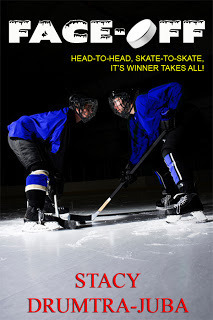 Why did you decide to do a hockey-focused sports book - are you a fan?
Why did you decide to do a hockey-focused sports book - are you a fan?
I wrote this book many years ago when I was 16 years old. I had discovered hockey during the 1988 Olympics and then started following NHL hockey. I was an avid reader and loved to read, however the only hockey books I could find at the library were biographies of 1970s hockey players. I wanted to read a fiction story revolving around hockey, but they seemed in short supply. I always loved to write stories, so initially Face-Off began as a way to entertain myself. I did have aspirations of publishing it, though. I entered it in a contest for teen writers and it won a publishing contract with a major publisher. Twenty years later, I brought it back into print and released e-book and audio editions also, as I still think there is a shortage of juvenile and teen novels about hockey.
Sounds like there's some sibling rivalry here. Do you have siblings? If so, how did your relationship with them influence the relationship between TJ and Brad?
I actually don't have siblings, but I used to wonder what it would be like to have them. I watched a lot of TV shows about siblings, like Growing Pains, Family Ties, and even The Brady Bunch, and I observed friends with siblings. I wanted to convey how siblings can be irritating, and how it's pretty typical for competition to arise, but how they stand by each other and can have a special friendship.
A lot of people talk about twins as having a special “connection” – almost like they can sense what the other one is doing. Do Brad and TJ have that kind of connection and how do they deal with it?
Brad and T.J. had a special connection when they were younger, but they drifted apart when their parents put T.J. in private school and they became rivals. Once they wind up on the same hockey team again, and are playing together on the same line, they can't deny that they still have that connection and that they can almost read each other's minds on the ice. Once they deal with their rivalry and get past the need to outdo each other, they realize that they want to have that connection off the ice also. Their parents are separating, and their younger brothers have trouble dealing with the family breaking apart, and the twins need to pull together to help their brothers as one thing the family doesn't need is more arguments.
Sounds like Brad resents/is jealous of TJ more than vice-versa. Is that true? In what ways is TJ jealous of Brad?
It was about equal until a few chapters into the book, when they find themselves in the same school and on the same hockey team. Their rivalry started when T.J. was sent to a private high school a few years earlier. T.J. felt a lot of pressure to excel academically, and resented that Brad was allowed to go to public school. Although he grew to like his school, T.J. still felt that Brad had more freedom to be himself rather than always having to please their parents. Meanwhile, Brad felt resentful that T.J. was known as the smart one. Brad has a secret, which is that he writes fiction, and it irks him that people only see him as a jock. When the family's financial situation forces them to put T.J. in public high school, Brad's resentment intensifies as now his twin brother is invading his turf. Brad's friends like T.J., and the coach is thrilled to have another star hockey player on the team. So once T.J. switches to public school, that is the catalyst for Brad's resentment escalating. At this point in the story, T.J. feels angry that his twin brother is acting so unsupportive. Their rivalry gets so intense that is starts to hurt the team.
You write in a lot of different genres. How is that challenging to you as a writer?
I write whatever story idea is the most pressing one on my mind. Sometimes it's an adult book, sometimes it's a children's story, and sometimes it's a young adult novel. I've enjoyed learning about different genres and meeting writers from different genres. I've been in various organizations over the years, such as Sisters in Crime, the Society of Children's Book Writers, and in various romance writer groups. It keeps me well-informed and versatile in today's constantly changing publishing industry. Writing adult books comes the most naturally to me, though. I have a couple YA sequels in the works, but expect most of my future novels to be for adults. My current work-in-progress is a light romantic comedy and I'm having a blast writing in that genre.
What do you find different, and intriguing, about writing for young adults opposed to an older audience?
Young adults are on a journey of self discovery, and need to find the confidence to be who they are amidst peer pressure. They want to fit in, and now with all of this technology and social networking available to them, they not only want to fit in at school, but they also want to "fit in" online on sites such as Facebook and Instagram. I think this is a difficult time to be a kid as they are growing up too fast nowadays. I want to get them away from their social networks and texting, and tell them a story, a fun entertaining story that takes them away from the Internet and the daily stress of being a teen. I also want the book to remind them that other kids are facing the same insecurities and problems that they are dealing with and that it's important to be true to yourself and find who you are - which isn't necessarily what others want you to be.
You won the Malice Domestic Grant for new mystery writers. What was that like and tell us about the story that got you the award.
That was a wonderful experience! I won it in 2005 for my novel-in-progress Sign of the Messenger, about a hands-on healer and psychic who gets involved in a mystery. I still would like to finish the book, but I wound up getting sidetracked by rewrites of my other books and then by promotion of my published novels. And then I got another, more pressing, book idea that demanded to be written. It's fully outlined though so I plan to go back to it. As far as winning the award, my husband came with me to the Malice Domestic Convention outside of Washington, D.C. I got to attend the conference and the award was presented at the Agatha Awards banquet. I loved meeting so many other writers and mystery lovers, and the other grant recipient, Hilary McGowan, became one of my closest friends. I used the $1,000 grant money to take online writing classes, and these classes were instrumental in helping me to reach the next step in my career.
You have a background as a journalist. How do you think that has helped your fiction writing and how is fiction different?
Being a journalist has helped me a great deal as I do a lot of research for my books, and sometimes I'll do an interview to get details that will enrich a novel. Journalism taught me those skills and it also taught me how to weave in details without making the story dry and boring. Newspaper articles need quotes to spice up a story and fiction needs dialogue and interesting narrative. If you just dump in a huge paragraph of information, it's boring and takes you out of the story. The one problem I had with switching gears was that in journalism, I was trained to write short and concise. With novels, I had to practice writing longer as if it's too short, the book is a novella and not a novel.
About Face-off
Head-to-Head, Skate-to-Skate, It’s Winner Takes All! What might have been a dream come true has turned into a nightmare. Brad’s twin brother T.J. has gotten himself out of the fancy prep school his father picked for him and into the public high school Brad attends. Now T.J., the bright light in his father’s eyes, is a shining new star on the hockey team where Brad once held the spotlight. And he’s testing his popularity with Brad’s friends, eyeing Brad’s girl and competing to be captain of the team. The whole school is rooting for a big double-strength win…not knowing that their twin hockey stars are heating up the ice for a winner takes all face-off. Re-issue of the hockey classic, originally written when Stacy was 16 and published when she was 18.
The Hockey Hall of Fame’s Junior Education Program – Recommended reading list for the junior and intermediate levels.
Best Books for Young Teen Readers: Grades 7-10 by John T. Gillespie -Recommended in the sports category.
Available at:
Amazon, Barnes&Noble, iBookstore, Kobo, Sony Reader Store, and Audible
Check the website, http://stacyjuba.com/blog/face-off/, for additional retail information.
About Stacy:
Stacy Juba has written about reality TV contestants targeted by a killer, an obit writer investigating a cold case, teen psychics who control minds, twin high school hockey stars battling on the ice, and teddy bears learning to raise the U.S. flag: she pursues whatever story ideas won’t leave her alone. Stacy’s titles include the adult mystery novels Sink or Swim and Twenty-Five Years Ago Today, the children’s picture books The Flag Keeper and the Teddy Bear Town Children’s Bundle (Three Complete Picture Books), and the young adult novels Face-Off and Dark Before Dawn. She is also the editor of the essay anthology 25 Years in the Rearview Mirror: 52 Authors Look Back. She is a former journalist with more than a dozen writing awards to her credit.
So just what is "power play day?" Well...
A "power play" in hockey is when one team is playing with one or more players than the other as the result of a penalty. And hockey is very much front and center in Stacy Juba's young adult book, Face Off. The book, a re-issue of the original, deals with twins Brad and TJ, whose rivalry isn't limited to the action on the ice. Who will come out on top? You'll have to read (or listen) to find out.
In my book, Power Play, Jaycee has to deal with a political grab for power by an unknown person. That unknown person is going to play a big part in the series, as Jaycee's repeated visits to the game world of Mallory challenge her to find out who this unknown enemy is and stop him. I visited Stacy's blog; you can read the interview here.
Take two young adult books, two authors, two interviews, shake well, and that is "power play day."
Here's Stacy!
~~~~~~~~~~~~~~~~~~~~~~~~~~~~~~~~~~~~~~~~~~~~~~~~~~~~~~~~~~~~~~~~~~~~~~~~
 Why did you decide to do a hockey-focused sports book - are you a fan?
Why did you decide to do a hockey-focused sports book - are you a fan?I wrote this book many years ago when I was 16 years old. I had discovered hockey during the 1988 Olympics and then started following NHL hockey. I was an avid reader and loved to read, however the only hockey books I could find at the library were biographies of 1970s hockey players. I wanted to read a fiction story revolving around hockey, but they seemed in short supply. I always loved to write stories, so initially Face-Off began as a way to entertain myself. I did have aspirations of publishing it, though. I entered it in a contest for teen writers and it won a publishing contract with a major publisher. Twenty years later, I brought it back into print and released e-book and audio editions also, as I still think there is a shortage of juvenile and teen novels about hockey.
Sounds like there's some sibling rivalry here. Do you have siblings? If so, how did your relationship with them influence the relationship between TJ and Brad?
I actually don't have siblings, but I used to wonder what it would be like to have them. I watched a lot of TV shows about siblings, like Growing Pains, Family Ties, and even The Brady Bunch, and I observed friends with siblings. I wanted to convey how siblings can be irritating, and how it's pretty typical for competition to arise, but how they stand by each other and can have a special friendship.
A lot of people talk about twins as having a special “connection” – almost like they can sense what the other one is doing. Do Brad and TJ have that kind of connection and how do they deal with it?
Brad and T.J. had a special connection when they were younger, but they drifted apart when their parents put T.J. in private school and they became rivals. Once they wind up on the same hockey team again, and are playing together on the same line, they can't deny that they still have that connection and that they can almost read each other's minds on the ice. Once they deal with their rivalry and get past the need to outdo each other, they realize that they want to have that connection off the ice also. Their parents are separating, and their younger brothers have trouble dealing with the family breaking apart, and the twins need to pull together to help their brothers as one thing the family doesn't need is more arguments.
Sounds like Brad resents/is jealous of TJ more than vice-versa. Is that true? In what ways is TJ jealous of Brad?
It was about equal until a few chapters into the book, when they find themselves in the same school and on the same hockey team. Their rivalry started when T.J. was sent to a private high school a few years earlier. T.J. felt a lot of pressure to excel academically, and resented that Brad was allowed to go to public school. Although he grew to like his school, T.J. still felt that Brad had more freedom to be himself rather than always having to please their parents. Meanwhile, Brad felt resentful that T.J. was known as the smart one. Brad has a secret, which is that he writes fiction, and it irks him that people only see him as a jock. When the family's financial situation forces them to put T.J. in public high school, Brad's resentment intensifies as now his twin brother is invading his turf. Brad's friends like T.J., and the coach is thrilled to have another star hockey player on the team. So once T.J. switches to public school, that is the catalyst for Brad's resentment escalating. At this point in the story, T.J. feels angry that his twin brother is acting so unsupportive. Their rivalry gets so intense that is starts to hurt the team.
You write in a lot of different genres. How is that challenging to you as a writer?
I write whatever story idea is the most pressing one on my mind. Sometimes it's an adult book, sometimes it's a children's story, and sometimes it's a young adult novel. I've enjoyed learning about different genres and meeting writers from different genres. I've been in various organizations over the years, such as Sisters in Crime, the Society of Children's Book Writers, and in various romance writer groups. It keeps me well-informed and versatile in today's constantly changing publishing industry. Writing adult books comes the most naturally to me, though. I have a couple YA sequels in the works, but expect most of my future novels to be for adults. My current work-in-progress is a light romantic comedy and I'm having a blast writing in that genre.
What do you find different, and intriguing, about writing for young adults opposed to an older audience?
Young adults are on a journey of self discovery, and need to find the confidence to be who they are amidst peer pressure. They want to fit in, and now with all of this technology and social networking available to them, they not only want to fit in at school, but they also want to "fit in" online on sites such as Facebook and Instagram. I think this is a difficult time to be a kid as they are growing up too fast nowadays. I want to get them away from their social networks and texting, and tell them a story, a fun entertaining story that takes them away from the Internet and the daily stress of being a teen. I also want the book to remind them that other kids are facing the same insecurities and problems that they are dealing with and that it's important to be true to yourself and find who you are - which isn't necessarily what others want you to be.
You won the Malice Domestic Grant for new mystery writers. What was that like and tell us about the story that got you the award.
That was a wonderful experience! I won it in 2005 for my novel-in-progress Sign of the Messenger, about a hands-on healer and psychic who gets involved in a mystery. I still would like to finish the book, but I wound up getting sidetracked by rewrites of my other books and then by promotion of my published novels. And then I got another, more pressing, book idea that demanded to be written. It's fully outlined though so I plan to go back to it. As far as winning the award, my husband came with me to the Malice Domestic Convention outside of Washington, D.C. I got to attend the conference and the award was presented at the Agatha Awards banquet. I loved meeting so many other writers and mystery lovers, and the other grant recipient, Hilary McGowan, became one of my closest friends. I used the $1,000 grant money to take online writing classes, and these classes were instrumental in helping me to reach the next step in my career.
You have a background as a journalist. How do you think that has helped your fiction writing and how is fiction different?
Being a journalist has helped me a great deal as I do a lot of research for my books, and sometimes I'll do an interview to get details that will enrich a novel. Journalism taught me those skills and it also taught me how to weave in details without making the story dry and boring. Newspaper articles need quotes to spice up a story and fiction needs dialogue and interesting narrative. If you just dump in a huge paragraph of information, it's boring and takes you out of the story. The one problem I had with switching gears was that in journalism, I was trained to write short and concise. With novels, I had to practice writing longer as if it's too short, the book is a novella and not a novel.
About Face-off
Head-to-Head, Skate-to-Skate, It’s Winner Takes All! What might have been a dream come true has turned into a nightmare. Brad’s twin brother T.J. has gotten himself out of the fancy prep school his father picked for him and into the public high school Brad attends. Now T.J., the bright light in his father’s eyes, is a shining new star on the hockey team where Brad once held the spotlight. And he’s testing his popularity with Brad’s friends, eyeing Brad’s girl and competing to be captain of the team. The whole school is rooting for a big double-strength win…not knowing that their twin hockey stars are heating up the ice for a winner takes all face-off. Re-issue of the hockey classic, originally written when Stacy was 16 and published when she was 18.
The Hockey Hall of Fame’s Junior Education Program – Recommended reading list for the junior and intermediate levels.
Best Books for Young Teen Readers: Grades 7-10 by John T. Gillespie -Recommended in the sports category.
Available at:
Amazon, Barnes&Noble, iBookstore, Kobo, Sony Reader Store, and Audible
Check the website, http://stacyjuba.com/blog/face-off/, for additional retail information.
About Stacy:
Stacy Juba has written about reality TV contestants targeted by a killer, an obit writer investigating a cold case, teen psychics who control minds, twin high school hockey stars battling on the ice, and teddy bears learning to raise the U.S. flag: she pursues whatever story ideas won’t leave her alone. Stacy’s titles include the adult mystery novels Sink or Swim and Twenty-Five Years Ago Today, the children’s picture books The Flag Keeper and the Teddy Bear Town Children’s Bundle (Three Complete Picture Books), and the young adult novels Face-Off and Dark Before Dawn. She is also the editor of the essay anthology 25 Years in the Rearview Mirror: 52 Authors Look Back. She is a former journalist with more than a dozen writing awards to her credit.
Published on January 17, 2013 04:30
January 16, 2013
Book Review: Alligators Overhead
by Mary Sutton / @mary_sutton73
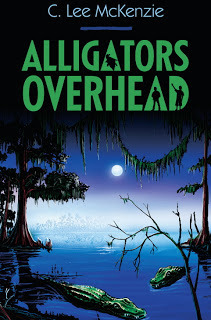 Author: C. Lee McKenzie
Author: C. Lee McKenzie
Personal Rating 4/5 stars
When Pete Riley loses his parents and is shipped off to live with his Aunt Lizzie, he doesn't think life can get much worse. Hadleytown is down-right boring. The only excitement comes from pranks and hanging with his friend Weasel. That is, things are boring until the Hadley Mansion, which hasn't been seen in 100 years, appears out of nowhere. Now Pete is hearing Harriet Hadley's voice in his head, making wishes come true, and talking to alligators. And what is all this about Aunt Lizzie being a witch?
I know, you may think that orphaned boys discovering magical powers has been done (Harry Potter anyone?). But Alligators Overhead is a delightful take on a familiar theme. Every young person is searching for identity. And while I have no personal experience, I'm sure most orphans are searching for a new sense of "home" and "family."
There are a couple of things that really made this book engaging for me. First, there doesn't seem to be a huge conspiracy among Hadleytown's witches, called "tellers," to hide. I mean, they aren't living right out in the open, but they also aren't using magic to hide themselves (unlike the great extents that wizards go to hide themselves from Muggles). They live perfectly ordinary lives - a baker, a craft shop owner, etc. This immersion feels very natural and makes the magic blend in well. It's just something they don't talk about.
Next, there is Weasel. He is not a witch (or warlock, as he so accurately points out). He's just a normal guy. And once he gets over the shock of having a warlock for a friend (although Pete's ability to wish food into existence is pretty cool), he adds real value to the story. He's not just some dippy non-magic sidekick along for the ride. Weasel is smart, probably smarter than Pete, and he uses those smarts to help his friend reason his way out of trouble. It's a partnership that works.
Perhaps one of the most delightful twists on the familiar "witches and wizards" trope are the alligators. No black cats or owls here. No, it is the alligators that serve as the familiars in Hadleytown. It is the oldest alligator, The Elder, who guides Pete through his most trying moment - the most critical point in is youthful wizard career.
All told, Alligators Overhead provides a delightful diversion for young readers and is a book that would especially appeal to boys. Pete is a friend whom they can related to, and who they can root on in his quest to save the Ornofree.
Alligators Overhead is available from Amazon (paperback and Kindle), Barnes&Noble (paperback and Nook), and Smashwords (ebook only).
Disclaimer: I received a complimentary copy of the book for review purposes. The review above is entirely my own and receipt of a complimentary copy in no way influenced my review.
 Author: C. Lee McKenzie
Author: C. Lee McKenziePersonal Rating 4/5 stars
When Pete Riley loses his parents and is shipped off to live with his Aunt Lizzie, he doesn't think life can get much worse. Hadleytown is down-right boring. The only excitement comes from pranks and hanging with his friend Weasel. That is, things are boring until the Hadley Mansion, which hasn't been seen in 100 years, appears out of nowhere. Now Pete is hearing Harriet Hadley's voice in his head, making wishes come true, and talking to alligators. And what is all this about Aunt Lizzie being a witch?
I know, you may think that orphaned boys discovering magical powers has been done (Harry Potter anyone?). But Alligators Overhead is a delightful take on a familiar theme. Every young person is searching for identity. And while I have no personal experience, I'm sure most orphans are searching for a new sense of "home" and "family."
There are a couple of things that really made this book engaging for me. First, there doesn't seem to be a huge conspiracy among Hadleytown's witches, called "tellers," to hide. I mean, they aren't living right out in the open, but they also aren't using magic to hide themselves (unlike the great extents that wizards go to hide themselves from Muggles). They live perfectly ordinary lives - a baker, a craft shop owner, etc. This immersion feels very natural and makes the magic blend in well. It's just something they don't talk about.
Next, there is Weasel. He is not a witch (or warlock, as he so accurately points out). He's just a normal guy. And once he gets over the shock of having a warlock for a friend (although Pete's ability to wish food into existence is pretty cool), he adds real value to the story. He's not just some dippy non-magic sidekick along for the ride. Weasel is smart, probably smarter than Pete, and he uses those smarts to help his friend reason his way out of trouble. It's a partnership that works.
Perhaps one of the most delightful twists on the familiar "witches and wizards" trope are the alligators. No black cats or owls here. No, it is the alligators that serve as the familiars in Hadleytown. It is the oldest alligator, The Elder, who guides Pete through his most trying moment - the most critical point in is youthful wizard career.
All told, Alligators Overhead provides a delightful diversion for young readers and is a book that would especially appeal to boys. Pete is a friend whom they can related to, and who they can root on in his quest to save the Ornofree.
Alligators Overhead is available from Amazon (paperback and Kindle), Barnes&Noble (paperback and Nook), and Smashwords (ebook only).
Disclaimer: I received a complimentary copy of the book for review purposes. The review above is entirely my own and receipt of a complimentary copy in no way influenced my review.
Published on January 16, 2013 06:01
January 15, 2013
Cover Reveal - Laura Howard's THE FORGOTTEN ONES
Title: The Forgotten Ones
Author: Laura Howard
Genre: NA Paranormal Fantasy Romance
Expected release date: May 15, 2013
Age Group: New Adult
Cover Designer: Stephanie Mooney


Book Description:
Allison O'Malley just graduated from college. Her life's plan is to get a job and take care of her schizophrenic mother. She doesn't have room for friends or even Ethan, who clearly wants more.
When Allison's long-lost father shows up, he claims he can bring her mother back from the dark place her mind has sent her. He reveals legends of a race of people long forgotten, the Tuatha de Danaan, along with the truth about why he abandoned her mother.

Laura Howard | Facebook | Twitter
Share on Facebook and/or Twitter and you could win a $50 Amazon (or B&N) Gift card!
a Rafflecopter giveaway
Published on January 15, 2013 06:00
January 10, 2013
Author Interview with the Mysteristas
by Mary Sutton / @mary_sutton73
 I was invited to visit with a group of crime fiction writers, the Mysteristas, at their blog today and answer a few questions - including some about Hero's Sword.
I was invited to visit with a group of crime fiction writers, the Mysteristas, at their blog today and answer a few questions - including some about Hero's Sword.
Please come visit and ask your own question!
 I was invited to visit with a group of crime fiction writers, the Mysteristas, at their blog today and answer a few questions - including some about Hero's Sword.
I was invited to visit with a group of crime fiction writers, the Mysteristas, at their blog today and answer a few questions - including some about Hero's Sword.Please come visit and ask your own question!
Published on January 10, 2013 08:10
December 31, 2012
Book Review: Slain in the Spirit
by Mary Sutton / @mary_sutton73
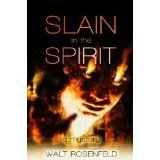 Personal rating: 3.5 out of 5 stars
Personal rating: 3.5 out of 5 stars
Over the holidays, I had the opportunity to read Slain in the Spirit, by Walt Rosenfeld. The book is a near-future sci-fi mystery and the themes are extremely familiar in today's world: environmentalism, the ethics of medical advances, and combat PTSD.
The story is mostly told from the viewpoint of Bill, an ex-soldier who is currently leading what might generously be called a "screwed up life." When you first meet Bill, there is a temptation not to like him. In fact, the character himself almost dares you not to like him. He's reclusive, mean, lazy, and a stoner. His greatest joys in life seem to be playing virtual poker and smoking marijuana. He's spiteful to his cousin, Marvin (who happens to be gay). But the spite doesn't seem to stem from a disapproval of Marvin's lifestyle, Bill is just being a jerk. To be honest, I felt bad for Marvin.
This is something that is particularly tricky for an author - the unlikable protagonist. If your protagonist is a stoner jerk-off, there needs to be a reason and that reason needs to spark the sympathy of the reader. Because nobody wants to read about an unlikable jerk-off.
Fortunately, Rosenfeld handles this well. Eventually you learn Bill's backstory and discover his, sometimes severe, PTSD - which has cost him a lot: a career, his wife, his ability to live. Bit by bit, Bill's journey, via his investigation into the death of Marvin's lover (which he initially takes on just for the money and to get Marvin out of his house), brings Bill out of the darkness and back into life. He even manages to love again, and find some of the joy he once had. Perhaps the best visual of the book is the final image of Bill on his "fuel-burning" motorcycle, reveling in the joy of being alive and free.
Against this, the investigation of the murder is a little bit of a secondary thought, but it's kind of okay - because that doesn't seem to really be what the plot is about. So if it lacks the "pizzazz" of a gripping, twisting, uber-complicated murder mystery, that's why. This is the story about a man's journey from darkness to light, set against the "who killed the mayor?" story line.
The story started out a bit uneven for me, as the first chapter is actually from the Mayor's view. I understood what Rosenfeld was trying to do, but that chapter lacked the smoothness of Bill's narrative. In fact, there are several chapters from other character's POV's and most of the jarring notes came from those chapters (except the one from Marvin's view, which was rather funny).
Fortunately, Bill's narrative had me hooked pretty quickly. Who did kill the mayor, who is trying to kill Bill, and will this guy ever stop being a dick? Since I became invested in Bill's growth early, I was able to move past the awkwardness of the alternate character POV chapters pretty easily.
It was easy to pick out current themes (environmental change, medical ethics, PTSD of combat veterans) pretty easily and they were all very relatable - the more things change and all that. I found the near-future technology inventions intriguing. I mean really, who hasn't dreamed of a car that drives you to your location? Julie's questions about the ethics of "playing God" with genetic manipulation are also pretty direct and relevant to current debate around genetically-modified food, etc.
This is a first novel effort, and displays some of the roughness to be expected of a first book. However, the author shows a lot of promise and should only get better with future books.
Slain in the Spirit is available from Amazon in paperback and Kindle formats.
 Personal rating: 3.5 out of 5 stars
Personal rating: 3.5 out of 5 starsOver the holidays, I had the opportunity to read Slain in the Spirit, by Walt Rosenfeld. The book is a near-future sci-fi mystery and the themes are extremely familiar in today's world: environmentalism, the ethics of medical advances, and combat PTSD.
The story is mostly told from the viewpoint of Bill, an ex-soldier who is currently leading what might generously be called a "screwed up life." When you first meet Bill, there is a temptation not to like him. In fact, the character himself almost dares you not to like him. He's reclusive, mean, lazy, and a stoner. His greatest joys in life seem to be playing virtual poker and smoking marijuana. He's spiteful to his cousin, Marvin (who happens to be gay). But the spite doesn't seem to stem from a disapproval of Marvin's lifestyle, Bill is just being a jerk. To be honest, I felt bad for Marvin.
This is something that is particularly tricky for an author - the unlikable protagonist. If your protagonist is a stoner jerk-off, there needs to be a reason and that reason needs to spark the sympathy of the reader. Because nobody wants to read about an unlikable jerk-off.
Fortunately, Rosenfeld handles this well. Eventually you learn Bill's backstory and discover his, sometimes severe, PTSD - which has cost him a lot: a career, his wife, his ability to live. Bit by bit, Bill's journey, via his investigation into the death of Marvin's lover (which he initially takes on just for the money and to get Marvin out of his house), brings Bill out of the darkness and back into life. He even manages to love again, and find some of the joy he once had. Perhaps the best visual of the book is the final image of Bill on his "fuel-burning" motorcycle, reveling in the joy of being alive and free.
Against this, the investigation of the murder is a little bit of a secondary thought, but it's kind of okay - because that doesn't seem to really be what the plot is about. So if it lacks the "pizzazz" of a gripping, twisting, uber-complicated murder mystery, that's why. This is the story about a man's journey from darkness to light, set against the "who killed the mayor?" story line.
The story started out a bit uneven for me, as the first chapter is actually from the Mayor's view. I understood what Rosenfeld was trying to do, but that chapter lacked the smoothness of Bill's narrative. In fact, there are several chapters from other character's POV's and most of the jarring notes came from those chapters (except the one from Marvin's view, which was rather funny).
Fortunately, Bill's narrative had me hooked pretty quickly. Who did kill the mayor, who is trying to kill Bill, and will this guy ever stop being a dick? Since I became invested in Bill's growth early, I was able to move past the awkwardness of the alternate character POV chapters pretty easily.
It was easy to pick out current themes (environmental change, medical ethics, PTSD of combat veterans) pretty easily and they were all very relatable - the more things change and all that. I found the near-future technology inventions intriguing. I mean really, who hasn't dreamed of a car that drives you to your location? Julie's questions about the ethics of "playing God" with genetic manipulation are also pretty direct and relevant to current debate around genetically-modified food, etc.
This is a first novel effort, and displays some of the roughness to be expected of a first book. However, the author shows a lot of promise and should only get better with future books.
Slain in the Spirit is available from Amazon in paperback and Kindle formats.
Published on December 31, 2012 16:19
December 21, 2012
Guest Blogging
 Yesterday, I was featured as a guest blogger by sci-fi author and freelance editor +Bryan Thomas Schmidt where I discussed world-building.
Yesterday, I was featured as a guest blogger by sci-fi author and freelance editor +Bryan Thomas Schmidt where I discussed world-building.Check out the post here and please, leave a comment!
Published on December 21, 2012 06:26
December 14, 2012
The Numbers Game
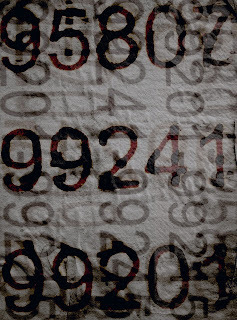 by Mary Sutton / @mary_sutton73
by Mary Sutton / @mary_sutton73My friend Amy has often talked about numbers. See, she's an endurance athlete. And they kinda pay attention to things like pace, laps, intervals - all stuff that revolves around numbers. As in "how fast" and "how many."
But Amy has often written about the dangers of paying too much attention to those numbers. How you can really give the gremlins in your head - the ones who say, "see, you suck, why are you even trying?" - free rein. And all that does is stifle your growth, because you can only hear "you suck" so many times before you starting thinking, "hey, maybe I do suck." Indeed, some of her best workouts are the ones where she's left her watch and Garmin behind and just run (or biked, or whatever).
As a taekwondo student and former sports journalist, I "got" her point. Life is about more than how fast you ran, or how many round kicks you can do in a row, or the points on the scoreboard. I got it - and I agreed with it.
Oh, but that was before I released a book. And now, now, well, I REALLY get it.
Before your book-child goes out into the world, you're insulated from all the "stuff." You write for you, you can pour yourself into the work, tell the story in your heart. And it's wonderful. When I get into the groove, it's my equivalent of a runner's high. I'm unstoppable, man. Look out!
But any writer who says, "Well, I don't really care about sales, I'm only writing for me," is not being entirely honest. Because what's the point of writing if you don't share it? And the minute you share it, well, there are scads of opportunities for feeling like you suck. Maybe someone will leave an unkind review, or you'll get umpteen letters of rejection from editors or agents.
Thanks to Amazon, writers don't have to deal with those rejection letters (although negative reviews are out there). But also thanks to Amazon, authors have their own numbers games: sales rank and author rank.
And let me tell you, those games suck.
You log in to Author Central, and you watch the lines going crazy. You get excited because they go up. But then the go down - and they keep going down. How do you get them up? Can you get them up? Why aren't they going up? Why, why, WHY????
It's insanity. And I'm taking a page from Amy's book. I'm leaving my Garmin behind (that is, ignoring the Amazon ranks) and writing the next book.
See, Amazon's ranking algorithms are kind of, well, unknown. The line may go up on a particular day, but you have no idea how many sales that is, or even what caused the spike. For all you know, it could be solar flares!
And really, it isn't a judgment on you. YOU WROTE A BOOK dammit! Not only that, you sent it out into the world! You rock! How many people think about that, but are too scared/intimidated to just do it? That person isn't you any more, because you did it.
A year ago, that was me. And thanks to some awesome people, now I can go to Amazon, query "Power Play: Hero's Sword" and see this.
So, Amazon, thanks for the opportunity. But I'm taking a stand, right here, right now. I refuse to play your numbers games. They do not define me. I wrote a book and it is for sale, and it's got a few good reviews.
And that, my friends, is awesome.
Image courtesy of Pink Sherbet; used under creative commons
Published on December 14, 2012 07:14
November 28, 2012
What is a "Real" Book?
by Mary Sutton / @mary_sutton73
It was a fine day, just like any other day, right up until I read this blog post from Nathan Bransford on the results of his (admittedly unscientific) poll on buying ebooks.
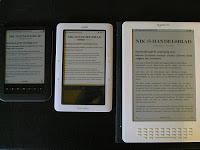 Bransford found that, for the first time, the percentage of people who said you'd have to pry paper books out of their "cold, dead hands" stayed the same. The percentage of people who professed to embrace ebooks also stayed the same.
Bransford found that, for the first time, the percentage of people who said you'd have to pry paper books out of their "cold, dead hands" stayed the same. The percentage of people who professed to embrace ebooks also stayed the same.
Okay, so a pretty non-controversial post, right?
Then I made the mistake of reading the comments. And boy oh boy did I feel my blood pressure start to go up.
Again, you had the usual distribution of people who like ebooks and people who don't. Then I got to the comment of a gentleman who referred to RFBs - or real f*-in books. And that's where I lost it.
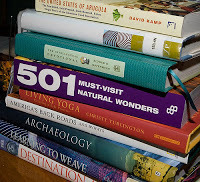 Okay, I get it - not everybody likes ebooks. And that's cool because hey, everybody's different and who am I to criticize someone's reading preference? It would be like criticizing genre preference. I understand. I'm a converted digital reading person myself because I never thought I'd like reading on a screen until I tried it.
Okay, I get it - not everybody likes ebooks. And that's cool because hey, everybody's different and who am I to criticize someone's reading preference? It would be like criticizing genre preference. I understand. I'm a converted digital reading person myself because I never thought I'd like reading on a screen until I tried it.
But seriously, some snobs need to get off of their high horses.
Yes, you heard me right - I said "snobs." Because when you get down to it, that's what they are.
So a book isn't "real" unless it's printed on paper, huh? So, my recent ebook release of Power Play isn't a real book because it's digital only?
What about audio books? Are they real?
The three novellas and the novel I wrote aren't "real books" because they currently only exist in digital format on my computer?
The novel that my friend Amy wrote as part of NaNoWriMo, her first, isn't a "real book" because it doesn't exist on paper yet?
I call shenanigans.
News flash: the dead tree matter, leather and glue you hold in your hand is indeed a physical object, a noun, called a "book." But that's not the important part. The important part, the thing that reaches out, grabs you by the throat, and keeps you up at night long past your bedtime isn't the form factor. It's the story conveyed by the words on the page.
In other words, it's something as virtual as anything digital. It can't been seen, smelled, tasted, or touched. Not by your eyes, nose, tongue or skin. All those things are experienced in the depths of your mind.
And when you think of all of the people for whom digital books have made reading a joy again - because their eyesight has deteriorated to the point where they can't see the print, even with glasses, or their arthritis is so bad they can't even hold a trade paperback - are you going to tell those people that they haven't been reading "real" books?
It's time for this to stop. Books are books, whether physical or virtual.
To say they aren't is insulting to readers - and authors - everywhere.
All images used under Creative Commons. Photo of e-readers courtesy of PiAir. Photo of stacked books courtesy of LollyKnit.
It was a fine day, just like any other day, right up until I read this blog post from Nathan Bransford on the results of his (admittedly unscientific) poll on buying ebooks.
 Bransford found that, for the first time, the percentage of people who said you'd have to pry paper books out of their "cold, dead hands" stayed the same. The percentage of people who professed to embrace ebooks also stayed the same.
Bransford found that, for the first time, the percentage of people who said you'd have to pry paper books out of their "cold, dead hands" stayed the same. The percentage of people who professed to embrace ebooks also stayed the same.Okay, so a pretty non-controversial post, right?
Then I made the mistake of reading the comments. And boy oh boy did I feel my blood pressure start to go up.
Again, you had the usual distribution of people who like ebooks and people who don't. Then I got to the comment of a gentleman who referred to RFBs - or real f*-in books. And that's where I lost it.
 Okay, I get it - not everybody likes ebooks. And that's cool because hey, everybody's different and who am I to criticize someone's reading preference? It would be like criticizing genre preference. I understand. I'm a converted digital reading person myself because I never thought I'd like reading on a screen until I tried it.
Okay, I get it - not everybody likes ebooks. And that's cool because hey, everybody's different and who am I to criticize someone's reading preference? It would be like criticizing genre preference. I understand. I'm a converted digital reading person myself because I never thought I'd like reading on a screen until I tried it.But seriously, some snobs need to get off of their high horses.
Yes, you heard me right - I said "snobs." Because when you get down to it, that's what they are.
So a book isn't "real" unless it's printed on paper, huh? So, my recent ebook release of Power Play isn't a real book because it's digital only?
What about audio books? Are they real?
The three novellas and the novel I wrote aren't "real books" because they currently only exist in digital format on my computer?
The novel that my friend Amy wrote as part of NaNoWriMo, her first, isn't a "real book" because it doesn't exist on paper yet?
I call shenanigans.
News flash: the dead tree matter, leather and glue you hold in your hand is indeed a physical object, a noun, called a "book." But that's not the important part. The important part, the thing that reaches out, grabs you by the throat, and keeps you up at night long past your bedtime isn't the form factor. It's the story conveyed by the words on the page.
In other words, it's something as virtual as anything digital. It can't been seen, smelled, tasted, or touched. Not by your eyes, nose, tongue or skin. All those things are experienced in the depths of your mind.
And when you think of all of the people for whom digital books have made reading a joy again - because their eyesight has deteriorated to the point where they can't see the print, even with glasses, or their arthritis is so bad they can't even hold a trade paperback - are you going to tell those people that they haven't been reading "real" books?
It's time for this to stop. Books are books, whether physical or virtual.
To say they aren't is insulting to readers - and authors - everywhere.
All images used under Creative Commons. Photo of e-readers courtesy of PiAir. Photo of stacked books courtesy of LollyKnit.
Published on November 28, 2012 10:34



